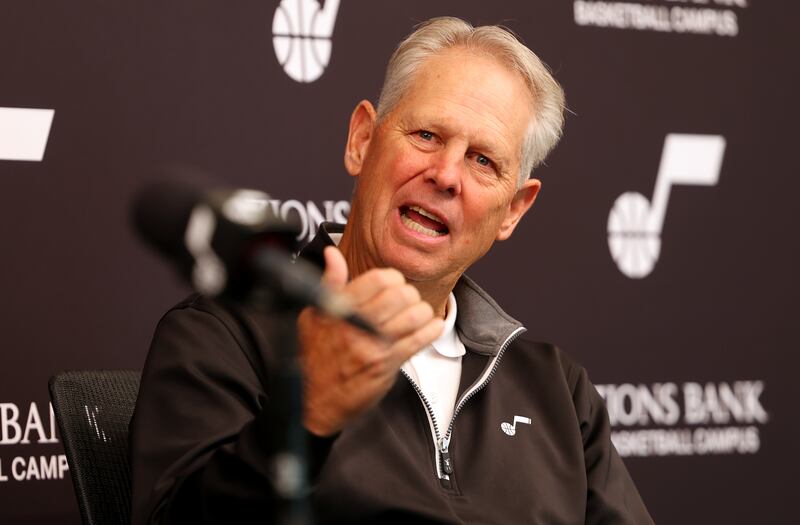When the Utah Jazz traded All-Stars Rudy Gobert and Donovan Mitchell over the summer, one of the things that made the returns they got seem strong was that they received multiple first-round draft pick swaps.
In all, the Jazz got three pick swaps, two from the Cleveland Cavaliers in the Mitchell deal and one from the Minnesota Timberwolves in the Gobert trade.
In 2026, Utah will have the option of swapping first-round picks with either team, and in 2028, it will have the option of swapping with the Cavaliers.
So, for example, if the Jazz get the 10th pick in 2026 and either Cleveland or Minnesota gets the fifth pick, Utah could claim the fifth pick and the other team would get the 10th.
While getting pick swaps might sound good in theory, how valuable are they actually?
Last week, The Ringer’s Zach Kram took a deep dive into the history of pick swaps, and in short, he found that they haven’t been all that valuable on the whole.
“The results suggest that pick swaps aren’t anywhere near as important as they might seem,” Kram wrote, noting that swaps have “been only about as valuable as the No. 36 overall pick.”
Kram added that “several team executives agree that — within the league itself, and especially in the public view — swaps are overvalued in a trade for a star.”
That said, the prime example Kram gave for a pick swap getting maximized involved Jazz CEO of basketball Danny Ainge when he was with the Boston Celtics.
In 2017, the Celtics had swap rights with the Brooklyn Nets and moved from the 27th pick to the No. 1 pick. (Boston later traded the first pick to the Philadelphia 76ers and landed All-Star Jayson Tatum at No. 3.)
Far more often, however, swaps haven’t meant much. According to Kram’s research using the Pro Sports Transactions archives, out of 31 times in NBA history that swaps could be exercised, only 12 have been.
Furthermore, Kram observed, most of the swaps that have been exercised have been for small moves up the draft board, not big ones like in the Celtics-Nets example. That small difference accounts for about the same amount of value as the 36th overall pick.
A big reason, Kram observed, that swaps don’t often amount to much is because the teams that receive them are often getting them in packages for stars, meaning they are rebuilding, while the team getting the star is more in contender mode.
It makes sense, then, why the Jazz wanted the swaps many years in the future. It stands to reason that the Cavaliers and Timberwolves will be very good in the short term and Utah will not, which would render a pick swap useless to the Jazz, but will that be the case four and six years from now?
Even so, Kram wrote, “There’s only a 50% chance that any random team will finish with a better draft spot than any other random team, so even in a best-case, long-term scenario, teams should count on gaining precisely zero value from a swap half the time.”
So why do rebuilding teams value pick swaps so much? Kram wrote that “the league at large is overvaluing swaps because they offer the tantalizing glimmer of upside. ... If a team adds a bunch of swap options — like the Rockets did in one big trade, or the Jazz did in separate transactions — then it increases the odds that at least one of them will hit big, like the Celtics did in 2017.”
Still, Kram concluded, “Teams will likely keep trading stars for swap rights as the 2020s continue, but more often than not, those swaps will fade without much impact.”


